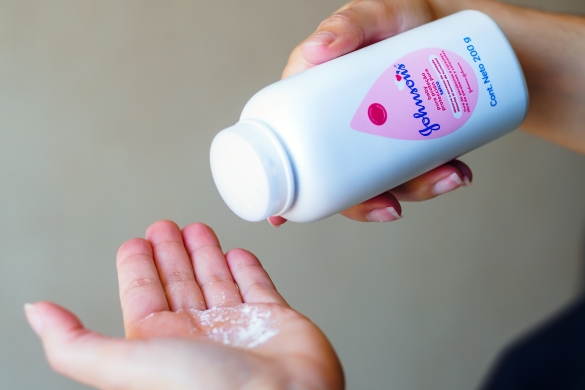In October of 2019, the Food and Drug Administration discovered a trace amount of asbestos in Johnson & Johnson’s baby powder. Though the product contained only “sub-trace levels” of asbestos contamination, Johnson & Johnson acted with “an abundance of caution” and immediately initiated a recall. The company claims its products are completely safe and rigorously tested on a regular basis, and they are working to determine if the specific bottle containing the asbestos was counterfeit, tampered with, or cross-contaminated.
Despite Johnson & Johnson’s insistence that consumers have nothing to worry about, the company is facing thousands of lawsuits and its shares have fallen 1.7%.
Why Are So Many Consumers Concerned About Asbestos?
Johnson & Johnson’s announcements regarding the recall include reassurances that the public is safe, claiming the amount of asbestos detected was minuscule, and therefore harmless. But the Journal of Occupational and Environmental Medicine published a study on October 10th involving 33 patients with malignant mesothelioma, and the results provide powerful evidence suggesting a connection between this cancer and exposure to talcum powder containing asbestos.
Steve Gold, a professor at Rutgers Law School, specializes in toxic and hazardous substances. He sees this study as a significant source of ammunition for plaintiffs seeking to recover damages. “If a credible physician and researcher is willing to testify and has published that these individual cancers appear to be caused by asbestos exposure from talcum powder…that’s very powerful,” Gold says.
Mesothelioma is a rare but deadly cancer affecting the lining of internal organs. The World Health Organization is one of several public health groups that considers asbestos a human carcinogen, linked to ovarian and lung cancer in addition to mesothelioma. Supplies such as insulators and car parts typically contain this mineral. So does talcum powder, which is found in a variety of cosmetics and used as the main ingredient in Johnson & Johnson’s baby powder.
Jacqueline Moline, a professor of occupational medicine, epidemiology, and prevention at the Feinstein Institutes for Medical Research, is a co-author of the asbestos study. She says that “everything points to cosmetic talc being the cause” of malignant mesothelioma, because the only substantial exposure the 33 women in her study had to asbestos was their use of talcum powder.
Despite Johnson & Johnson’s insistence that their baby powder is safe to use, many consumers are not interested in taking the risk. Those who have the cancer are trying to hold the company accountable, and some have succeeded, such as a Californian who was awarded $29 million in March for the connection between her mesothelioma and the talcum-powder-based product. While some courts have sided with Johnson & Johnson, this new study may fuel the continued onslaught of lawsuits.
Have You Been Affected by a Defective or Dangerous Product?
When you purchase a product from a reputable and well-established company, you likely assume it will be safe to use. But even medical and pharmaceutical giants such as Johnson & Johnson are capable of error—or they may be motivated by money rather than your health and wellbeing. At Bailey Cowan Heckaman PLLC, our attorneys have decades of experience fighting on behalf of clients who were wronged by deceitful, greedy companies.
If you are going up against a corporate giant, we are the team you need. Call or contact us online to schedule your initial consultation.

